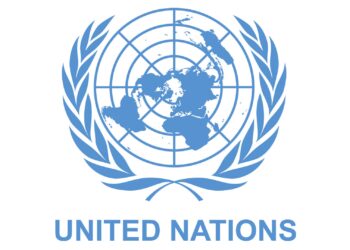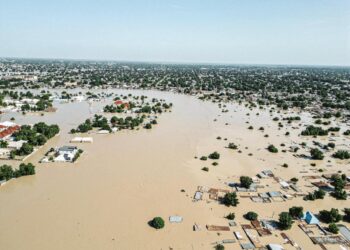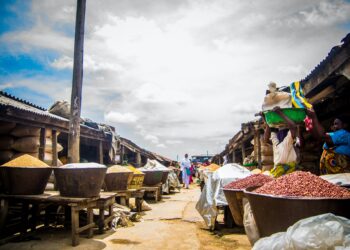As Nigeria faces significant challenges due to the impacts of widening insecurity and a worsening humanitarian and food crisis currently affecting not only the northeast, but other parts of the country, the Honourable Minister of Humanitarian Affairs, Disaster Management and Social Development, Sadiya Umar Farouq was hosted in a Chatham House Webinar to discuss Nigeria’s humanitarian challenges and worsening food crises.
The World Food Programme estimates that 3.4 million people are currently facing acute hunger in Borno, Yobe and Adamawa states, and that another 4.3 million are entirely dependent on food assistance from the government or multilateral organisations across the country.
Describing Nigeria’s worsening humanitarian situation, the Honourable Minister enumerated the protracted insurgency and armed banditry in the northeast, the new frontier armed banditry in the States of the northwest, numerous incidents of communal and ethno-religious clashes, such as the farmer versus herdsmen clashes in the Middle Belt and the Southern region and flash and riverine floods, drought, as well as fires, and industrial accidents, among other things, leading to about 330,000 Nigerian refugees presently residing in neighboring countries of Chad:16,634, Cameroon:118,409, and Niger Republic:186,957.
The Honorable Minister listed two key frameworks launched by the Ministry aimed at boosting humanitarian actions and making them more practicable and impactful.
“The first is the Humanitarian Development Peace Nexus Framework, which is derived from the UN Triple Nexus principles that believes development causes peace and that humanitarian actions can bring about development and second is the Localization Framework, an initiative adopted after the commitment of stakeholders at the 2016 World Humanitarian Summit to reenergize the concept of localization of aid. The concept seeks to make the humanitarian system more effective and relevant by ensuring that humanitarian preparedness and response capacity is domiciled with those nearest to the crisis-affected populations as they are best placed to respond quickly and appropriately”.
On easing Nigeria’s food crises, the Honourable Minister spoke on approaches adopted by the Ministry to mitigate sufferings caused by humanitarian situations leading to food crises in the country.
“The food security challenges in the Northeast are peculiar due to the fluid and volatile situation in the region. Nevertheless, the Ministry has been working effectively with both humanitarian stakeholders and the Military to facilitate humanitarian access and promote accountability in the humanitarian space within the Civil-Security Framework and coordination platform.
“The recently approved National IDP Policy also provides leadership and guidance framework towards food security for the North-East region, as well as promotes minimum standards and thresholds to tackle ongoing displacement until a durable solution is established for the IDPs”.
While responding to a question on the Q&A segment of the meeting, the Honourable Minister Sadiya Umar Farouq spoke of the numerous programs under the supervision of the Ministry that seek to address food crises and other humanitarian issues faced by People of Concern in Nigeria.
She said: “The Federal Government, through the National Emergency Management Agency (NEMA) provides rationed food items to IDPs in the Northeast, especially in Borno State. In addition, State governments and other MDAs also channel food through the Ministry or directly to IDPs”.
“For example, the National Emergency Management Agency (NEMA) is currently distributing seedlings, farming inputs and insurance packages to farmers who were affected by the 2020 floods. The objective is not to replace lost goods and farm produce, but to enhance better quality yields and build resilience among vulnerable farmers and adopt a more sustainable approach to ending food scarcity”.
The Minister affirmed her appreciation of the robust support and partnership the Ministry receives through various donor agencies and development partners but sought for increased partnership in key programs, policies, and structures to address the prevailing humanitarian challenges of Nigeria through collective planning and agenda shaping in a coordinated and sustained manner for better impact.
With a call for a robust and mutually beneficial interaction, the Minister ended her presentation to the Chatham House audiences by calling for increased cooperation in the Nigerian humanitarian space.
According to Honourable Minister Umar Farouq: “It is my fervent hope and that of the Ministry that an effective technical, operational and financial cooperation and support from the UN will significantly contribute towards the effective realization of the Ministry’s twin objectives of achieving effective coordination and impactful implementation of its programmes in a sustainable manner”.
A well-coordinated increased cooperation and partnership in Nigeria’s humanitarian activities will help greatly mitigate the food crises in the northeast, the new frontier States of the northwest and northcentral and the southern parts of the country.
Matlou Tsotsetsi wrote from Johannesbourg



















